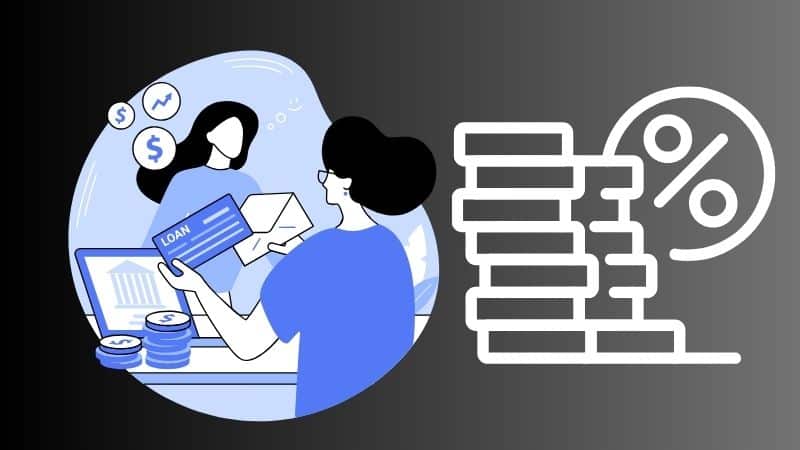Advertisements
After all, how to qualify for small business loans? Securing financing stands as a pivotal milestone for small business proprietors endeavoring to initiate or expand their ventures. Mastering the qualifications for small business loans can significantly enhance your prospects of acquiring the requisite funding. This article delineates key facets, encompassing understanding eligibility prerequisites, assembling requisite documentation, and selecting the appropriate lender.
Comprehending Eligibility Criteria
Credit Score – How to qualify for small business loans
Your credit score constitutes a primary determinant scrutinized by lenders. A robust credit score not only heightens approval prospects but also facilitates securing favorable interest rates. Typically, a score surpassing 680 is deemed favorable, although certain lenders may accommodate lower scores.
Business History – How to qualify for small business loans
Lenders typically mandate a minimum operational tenure of two years for your business. This history underscores stability and diminishes risk for the lender. Startups, however, might rely more on their business plans and the proprietor’s personal credit. Concurrently, exploring the prevailing best personal loan rates in the market is prudent.
Annual Revenue
The annual revenue of your business emerges as another pivotal consideration. It underscores your capacity to repay the loan. While prerequisites vary among lenders, businesses generally necessitate demonstrating a consistent income stream.
Debt-to-Income Ratio – How to qualify for small business loans
This ratio gauges your aggregate monthly debt against your monthly income. Lenders employ it to evaluate your business’s aptitude for assuming and repaying new debt. A lower ratio typically augurs well for loan approval prospects.
Advertisements
Crafting a Robust Business Plan
Your business plan should compellingly delineate how the loan will fuel your business’s growth and ensure its sustainability. Tailor your business plan to accentuate financial robustness and growth prospects.
Selecting the Appropriate Lender
Diverse Lender Options
Traditional Banks: While offering the most favorable rates, traditional banks maintain stringent qualification standards.
Credit Unions: Typically boasting more lenient lending criteria and lower rates than banks, credit unions necessitate membership.
Advertisements
Online Lenders: Known for their expedited application processes and relaxed requirements, online lenders cater to businesses encountering challenges in meeting traditional bank criteria.
Evaluating Loan Terms
Comparing interest rates, loan terms, fees, and repayment alternatives is paramount. Seek clarity and transparency in lenders’ terms and conditions to preempt hidden expenses.
FAQs: How to qualify for small business loans

1 – How does a robust business plan enhance my loan approval chances?
A robust business plan illustrates to lenders your clear and viable strategy for utilizing the loan effectively to generate revenue. It should encompass your business strategy, market analysis, financial projections, and management team.
2 – What are the available lender options for small business loans?
Options comprise traditional banks, credit unions, and online lenders. Each presents distinct requirements and benefits, such as competitive rates or more adaptable criteria.
3 – How do I select the most suitable lender for my small business loan?
Evaluate various factors, including loan terms, interest rates, fees, and the lender’s reputation. Prioritize aspects pertinent to your business needs, such as expedited funding or favorable loan costs.
4 – Are there industries that encounter challenges in how to qualify for small business loans?
Indeed, sectors like restaurants, retail, and seasonal businesses may encounter heightened scrutiny due to their elevated risk of revenue fluctuations.
5 – What steps should I take if my loan application faces rejection?
Initially, ascertain the reasons for the denial, which may entail reviewing your credit score, financial statements, or other cited factors. Subsequently, address these concerns before reapplying. Alternatively, explore options like applying with a different lender or considering alternative financing avenues like business lines of credit or merchant cash advances.
In Conclusion
Attaining eligibility for a small business loan can profoundly influence your business’s growth and sustainability. By comprehensively understanding the qualification criteria for small business loans, you can tailor your approach to meet lenders’ stringent standards. Thorough preparation of documentation, including robust financial records and a comprehensive business plan demonstrating growth potential and financial stability, is essential.
Additionally, selecting the appropriate lender is paramount in securing favorable loan terms. Whether opting for a traditional bank, credit union, or online lender, each presents unique advantages and requirements. Conducting a meticulous comparison of their offerings and comprehending their terms can avert potential financial strain resulting from unfavorable loan conditions.
Should you encounter challenges in meeting loan qualifications, explore alternative financing options like microloans, business lines of credit, or crowdfunding. These alternatives can furnish requisite capital while you endeavor to fortify your business’s financial standing and creditworthiness.
In summary, obtaining a small business loan necessitates a blend of sound credit, financial stability, thorough preparation, and strategic lender selection. By investing effort in comprehending and addressing these factors, you can heighten your approval prospects and secure the financial backing indispensable for your business’s prosperity. Remember, each application serves as a learning opportunity, propelling you closer toward realizing your business objectives.





